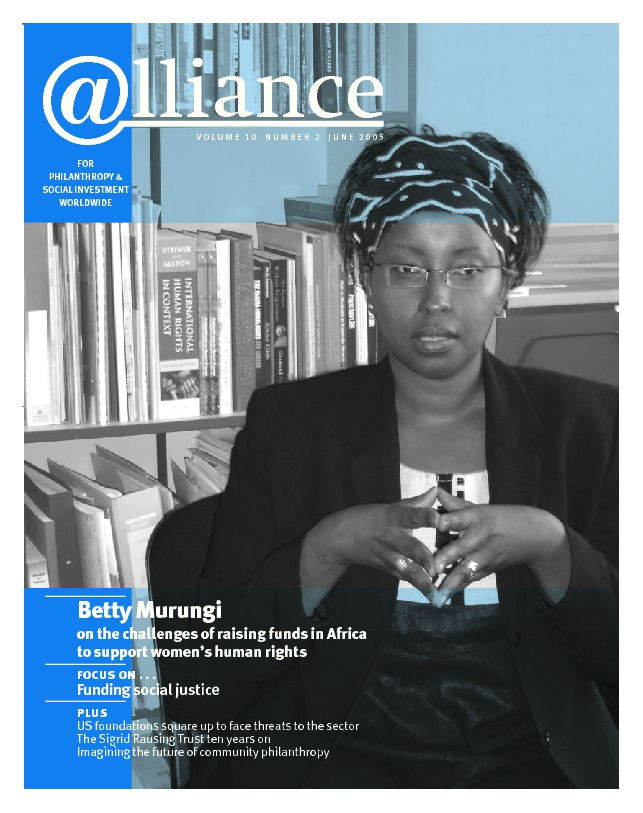INSP has now published the results of its four-year project in the form of a collection of ten papers on contemporary issues in philanthropy, Rethinking Philanthropic Effectiveness – Lessons from an international network of foundation experts. The aim of the project and the publication is to encourage more strategic philanthropy in the field.
The ten papers cover a wide range of subjects including the role of philanthropy in globalization, the promotion of philanthropy, and effective board management. They summarize INSP members’ work and discussions over the past four years on some of philanthropy’s most pressing questions: what are its major challenges? How do foundations perceive, assess and solve problems? What is best practice for management and evaluation? How can foundations increase their efficiency and effectiveness?
The network members’ effort is a significant step towards a satisfactory ‘frame’ or methodology for the analysis of philanthropy. The papers do not offer easy answers to thorny questions, but the 60 or so experienced practitioners whose collaboration made the papers possible offer countless insights into the problems with which philanthropy must grapple if it is truly to achieve its promise in the decades ahead.
Because of the large variety of topics covered and the different backgrounds of the authors the book addresses an exceptionally large target group which includes foundation staff, individual donors and even newcomers to the philanthropic field.
Online availability
In addition to the book, INSP is also launching the Rethinking Philanthropic Effectiveness series on its website (http://www.insp.efc.de). The site will feature full and shortened versions of the papers, which can be found in the download section. The first paper to be made available on the site is The Role of Evaluation in the 21st Century Foundation by Edward Pauly, Director of Evaluation at the Wallace Foundation since 1996.
Evaluation as a means of learning
The author starts out with looking at evaluations from a different angle: He stresses the function of evaluations as learning tools. Thus, the central question in designing a foundation’s evaluation is: “What do the foundation’s leaders most need to learn so that the foundation and its grantees can achieve the foundation’s goals?”
The author stresses the function of evaluation as a learning tool. He suggests that the central question in designing a foundation’s evaluation should be: what do the foundation’s leaders most need to learn so that the foundation and its grantees can achieve the foundation’s goals? In this way, each evaluation can be closely aligned with the needs of the foundation and the uncertainty of purpose that sometimes limits the usefulness of evaluations can be avoided. He goes on to present new evaluation tools and suggest ways to avoid the ‘five pitfalls of foundations’ evaluation’ (evaluations that do not seek significant learning, low-quality evaluations, the fear of evaluation and the need for sensitivity about future funding, excessive focus on specifying outcomes, premature evaluation of innovations) – by reconsidering the role of evaluation and acknowledging that its most useful role is not policing but learning. Interestingly, all of the Wallace Foundation’s own evaluations are made public in order to enable their findings to be widely used by other organizations and policymakers.
To complete the picture, the paper provides a detailed look at the philanthropic tradition and evaluation methods in the US, Europe, Russia, Africa, South America and Hong Kong.
For more information about INSP, see http://www.insp.efc.de or contact Dirk Eilinghoff at dirk.eilinghoff@bertelsmann.de
To order Rethinking Philanthropic Effectiveness, contact the Brookings Institution (http://www.brookings.edu) or INSP (http://www.insp.efc.be). Price $36/€30






Comments (0)